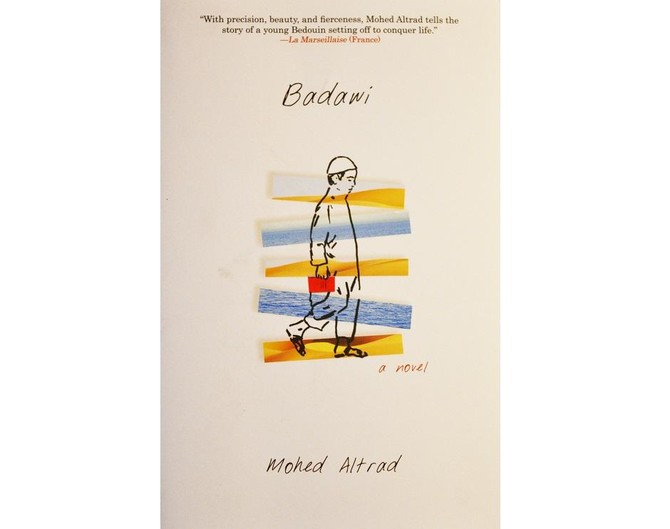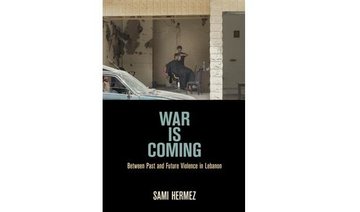“Badawi,” the debut novel of French billionaire Mohed Altrad, is an exceptional story of a young Bedouin boy who, against all odds, leaves an ill-fated future of becoming a tribal shepherd in the deserts of Syria for an education and a government grant to study petrochemistry at the University of Montpellier in France. The story is unique and semi-autobiographical, as Altrad himself was born to a Bedouin tribe in Syria and eventually became an engineer and then a billionaire. The book is a true rags-to-riches story, with heart-wrenching events at nearly every corner. It is a beautifully-told story, simple and timeless, and a homage to hard work and perseverance. Badawi is Altrad’s first novel, published in 2002 in France. It was translated into English from French by Adriana Hunter in 2016.
The book opens with a tragedy. A young boy has just lost his mother. Around him, there is sorrow and multiple voices constantly repeating a verse, “she went out like a fire, with no embers left to burn.” His mother had been ill for a long time and not only that, she was “a repudiated woman.” The young boy wonders why people are showing affection for his mother now in death when alive they paid little to no attention to her. Because she had been rejected by her husband, she had also been rejected by society since “a repudiated woman was a fallen woman. No one would want her.”
Married young at the insistence of her mother, and married to an older man who already had a wife, the future of the boy’s mother would always be troubled. After giving birth to her son, she was rejected by her husband, as was her baby. Life would not be easy for either of them after that, especially not the young boy, not after he lost his only support in the entire desert. Having sat with her when she breathed her last breath, he realized things had changed immediately when “outside, the sky was motionless, the stars frozen in place, shining for themselves alone; the wind had dropped; and the dogs had stopped yelping. The desert had no soul.”
With poverty urging him to submit to its power, a grandmother complaining about her ill-repute because of her daughter, and a father who did not want him, Maïouf, “the abandoned one,” decides that his future is in his own hands. Although young and naïve, the journey Maïouf set himself on will be one that even he could not dream up, despite the vivid imagination of the child.
Altrad’s story is brilliantly told. It is littered with picturesque scenes of desert caravans and Bedouin life, but not without the hardship and heartache that comes along with it. Maïouf’s history, his Bedouin past is always with him, and is fascinating to read. Altrad writes about the tribes living south of the river, with just their horses and tents. The tribes “moved on to the rhythm of their flocks’ search for new outcrops of grass.” When winter moved into the desert or there were violent storms overhead, the Bedouins’ tents “made a sort of village in the middle of the desert, a village no traveler could see.”
The fight of the Bedouin people was not only against nature, but against the sedentary people, those who claimed the lands that the Bedouin had been roaming for centuries. It is this past that Maïouf must escape, but not so much the Bedouin people as much as his own family. They have hardly cared for him and have always seen him as a burden. He is determined to not live this way, to find a path on which he can succeed and leave. But his first obstacle comes soon when his grandmother refuses to let him go to school and instead tells him he must be a shepherd.
Altrad manages to balance a rich sense of history with a modern-day story and the constrictions of a strict and poverty-stricken upbringing. As he writes about the Bedouin tribes, the reader feels a sense of lost history, of a faded story, but it is not altogether terrible. Sometimes, the romanticism of the past can dilute difficult realities and constrictive traditions and ideas. Maïouf does not lose himself in a sense of history or tradition. He is the one who breaks with tradition and defies his grandmother to go to school. It is the grandmother who blames the boy for the life he has and it is Maïouf who vows to show her that this is not the life he chose and he will do everything in his power to ensure the life he lives is the one he has chosen.
Although he is one of the poorest children, with his dusty clothes and worn pencil, Maïouf is brilliant. He is smarter then all his classmates and it is his will and perseverance that gets him to secondary school and eventually senior school in Raqqa where he passes his baccalaureate and eventually receives a government grant to study at the University of Montpellier.
Altrad’s story tugs at even the toughest of hearts. The success of a struggling child is like the heartbeat of a society. It is through the child’s struggle, naivety, strength and success that people rally together. Altrad writes simply and beautifully, not taking anything away from Maïouf, the Bedouin tribes or from the Syrian desert or cities. He writes of a story that could take place in Syria, France or Abu Dhabi, but it is a story that transcends history and borders. The extent to which tradition can at times destroy or uplift a child’s life is boundless. It is the will within each child that differentiates one from the other.
From the moment you pick up this book to the very end, you are invested in Maïouf and his success. In the short chapters, like vignettes of memories, the reader attaches themself to Maïouf’s journey. It is the classic rags-to-riches story, but set in a rich desert of history and tradition. It is not the desert that Maiouf wants to escape from, but from the constrictive rules that keep him there. Eventually, Maiouf cannot stay away from the desert too long. It is something that torments him but also makes him feel as if he is home.
Altrad’s book dives into cultural differences, historical issues and societal divisions that can limit a society and its children without even realizing it. His book pays homage to perseverance and the will of children. It is a beautifully told story with a vibrant history and future.


Book Review: The Bedouin who made it to France
Book Review: The Bedouin who made it to France

What We Are Reading Today: ‘Moths of Western North America’ by Seabrooke Leckie

Western North America is home to a surprising array of moth species that come in a variety of colors and sizes.
This richly illustrated field guide covers 1,900 of the most commonly occurring species in the region, from the United States–Mexico border north to Edmonton, Alberta, and central British Columbia.
Images on the full-color plates are marked with arrows to help users quickly know the most important features to look for, while facing-page species accounts highlight these features and, when applicable, how they differ from those of similar species.
© 2026 SAUDI RESEARCH & PUBLISHING COMPANY, All Rights Reserved And subject to Terms of Use Agreement.














